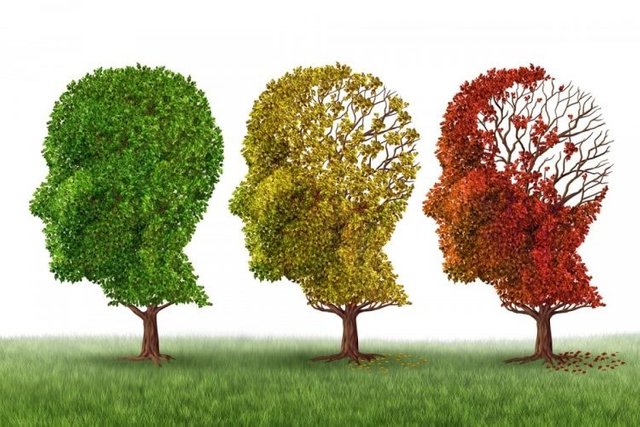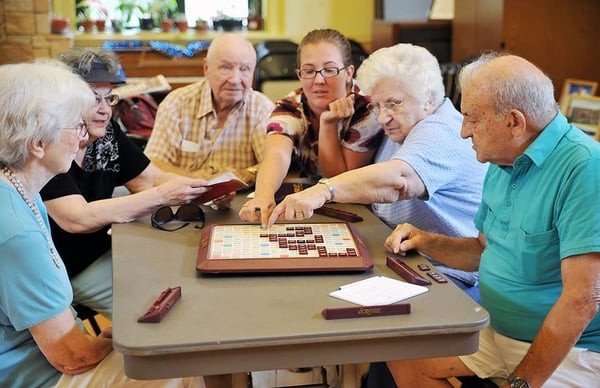6 ways to avoid dementia and Alzheimer's!
The most important factors against Alzheimer's and Dementia are; healthy eating, physical and mental activities, quality sleep, social interactions, and coping with stress.

Forgetfulness, attention and concentration disorders are common complaints in all age groups today. This leads to vitamin deficiencies, thyroid diseases, stress, brain tumors, multiple sclerosis (MS), blockages in the blood vessels of the brain, brain hemorrhages and many other diseases. Alzheimer's disease is the most common disease among those who develop senile dementia. However, it is important to distinguish the diseases that lead to other dementia and treatable before this diagnosis.
Many factors in Alzheimer's and other dementia diseases are important in the appearance and course of the disease. In our daily life, the points to be taken care of in order to protect against dementia are summarized in six main topics:

Healthy eating:
Feed on the Mediterranean diet; plenty of vegetables, fruits, pulses (beans, lentils, chickpeas, etc.), whole grains, fish and olive oil must be consumed, dairy products and meat should be used less.
Feed your glial brain cells: these cells remove harmful substances from your brain; ginger, green tea, fish, soy products, blueberries and other dark berries protect your cells.
Trans fats (bakery products, snacks, fast food, fry - called partial hydrogenated oil) and saturated fats (full fat dairy products, meat, coconut, etc.) should be avoided.
Omega 3 (salmon, tuna fish, sardines, fish oil) should be picked up adequately.
Alcohol consumption should be reduced.
It protects and improves the functions of folic acid, vitamin B12, vitamin D, magnesium and fish oil.
Vitamin E, gingko, and coenzyme Q10 are recommended, although their benefits are unclear.
Vitamin E should be taken from foods (seeds, nuts, peanuts, walnuts, green leafy vegetables, whole grains) instead of medicines.
The place of aluminum intoxication in Alzheimer's disease is controversial as well as antacids, baking soda and kitchen utensils containing it should be avoided.

Physical activity:
Regular aerobic exercise; at least 150 min per week. exercise at moderate level. Walking and swimming are especially recommended for beginners. However, even daily activities such as cleaning, gardening can be enough.
Balance and coordination exercises should not be forgotten. Yoga, Tai Chi, equilibrium must be included in the exercises as they can cause problems especially in fall days.
In addition, light-to-medium weight and resistance exercises to increase muscle mass can be added.
Protect your head: head injuries increase your dementia risk.
It can be hard to get started with the exacerbate: remember that it will take at least 1 month to become a habit
Achievable targets must be set.

Mental Activity:
Learn a new topic.
Strengthen your memory: start with simple exercises.
Have mental activities such as strategy games, puzzles, riddles.
Play 5N 1K (Who, What, Where, When, Why) in daily activities. Investigate events like Detective.
Change your daily routines. Go from a different path, reorganize the computer, use your non-dominant hand, and so on. In this way, create new ways in your brain.
Studies show beneficial effects even after 10 years, as well as improving daily cognitive functions of short term mental activities.
Mental activity may delay the emergence of functional complaints of dementia.

Quality Sleep
If you have a snoring, have it checked for sleep apnea syndrome.
Organize your sleep: sleeping and getting up at certain times regulates the daily rhythm.
Be careful about daytime sleep. Although short sleep is a good opportunity to renew your energy, insomnia can increase your complaints.
Keep your television and computer away from your bedroom.
Before you go to bed, you will find relaxing activities (hot bath, light stretching exercises, diary writing, etc.).
Social Interaction
Be social; socialization has strengthened cognitive activities.
Make new friends.
Participate in group lessons, become a member of social clubs, and participate in volunteer work.
Get out; go to movies, concerts, parks and museums.
To cope with stress
Breathe. Stress breathing may disrupt rhythm; breathe deeply using your abdominal muscles.
Do daily relaxing exercises.
Provide your inner peace; meditation, reflection, prayer, etc. may be useful.
Make entertainment a priority.
Please Check my Lastest Post
What is hyperhidrosis, excessive sweating? Treatment ...
What are the foods containing magnesium?
Bitcoin has broken records of all time. new record $ 8250
Unusual method of opening nasal obstruction
What happens if you consume fish oil every day?
Home made cough syrup with 3 ingredients
Vitamin D is very important.
About benefits of honey and pear
Put the garlic into the lemon juice, the benefits of drinking
!originalworks
The @OriginalWorks bot has determined this post by @rtonline to be original material and upvoted(1.5%) it!
To call @OriginalWorks, simply reply to any post with @originalworks or !originalworks in your message!
early diagnosis is very important.
Congratulations! This post has been upvoted from the communal account, @minnowsupport, by ramt from the Minnow Support Project. It's a witness project run by aggroed, ausbitbank, teamsteem, theprophet0, someguy123, neoxian, followbtcnews/crimsonclad, and netuoso. The goal is to help Steemit grow by supporting Minnows and creating a social network. Please find us in the Peace, Abundance, and Liberty Network (PALnet) Discord Channel. It's a completely public and open space to all members of the Steemit community who voluntarily choose to be there.